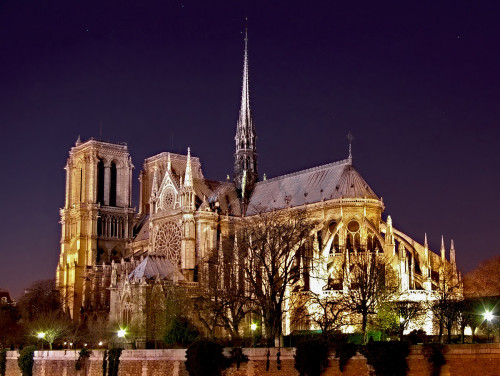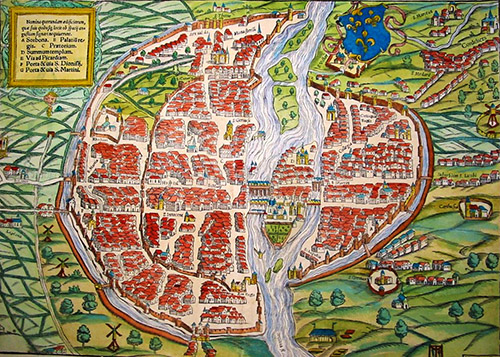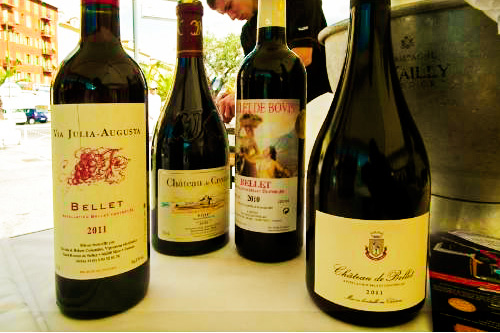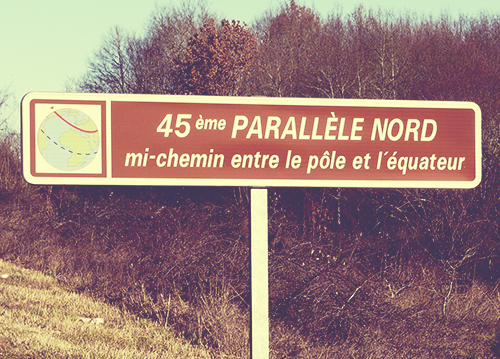
The abbey church (or basilica) of Saint Denis, just north of Paris, is considered to be the world’s first example of gothic architecture.
According to legend, around 250AD, Denis, the bishop of the Parisii, was decapitated at the top of the hill at Montmartre*. Not being one to take his execution lying down, he picked up his head, and walked six miles – preaching all the way – to where he wanted to be buried. A martyrium – and subsequent high altars – was erected over his alleged tomb.
In 1135, Abbot Suger commissioned the rebuilding of the basilica, and with the completion of the choir in 1144, the new gothic architectural style had been born. As well as being the first gothic church, the basilica is famed for being the last resting place of most of the Kings of France since the Frankish king, Clovis.
From Saint Denis, gothic architecture spread to Picardie in Northern France, with Laon, Senlis, and Noyon being fine examples of the style. And from there, to the ÃŽle-de-France, before spreading out across the rest of Europe.
Interestingly, at the time, the style was not referred to as gothic but as Opus Francigenum (French work). Gothic was a derogatory term which appeared four hundred years later, during the Renaissance. People began to favor the simpler, cleaner lines of the Greco-Roman revival, and viewed the old, gothic architecture as unnecessarily complicated, even going as far as to call it barbaric – hence, gothic.
Fortunately for us, the mid-18th century saw a revival in gothic architecture, and thanks to Eugène Viollet-le-Duc’s restorations of Notre-Dame, Sainte Chapelle, and Carcassonne, for example, we in the 21st century are still able to enjoy the magnificence of the pointed arches, the dreaming spires, the breath-taking stained glass, and the awe-inspiring flying buttresses of these monuments to both God and the ingenuity of man.
~~~
*People are divided as to how Montmartre got its name; some claim it’s from ‘mons mercurei et mons martis’ - Hill of Mercury and Mars, while others claim it’s derived from the Latin, ‘mons martyrium’ – Martyrs’ Mountain. No one knows for certain.
0




Leave a Reply